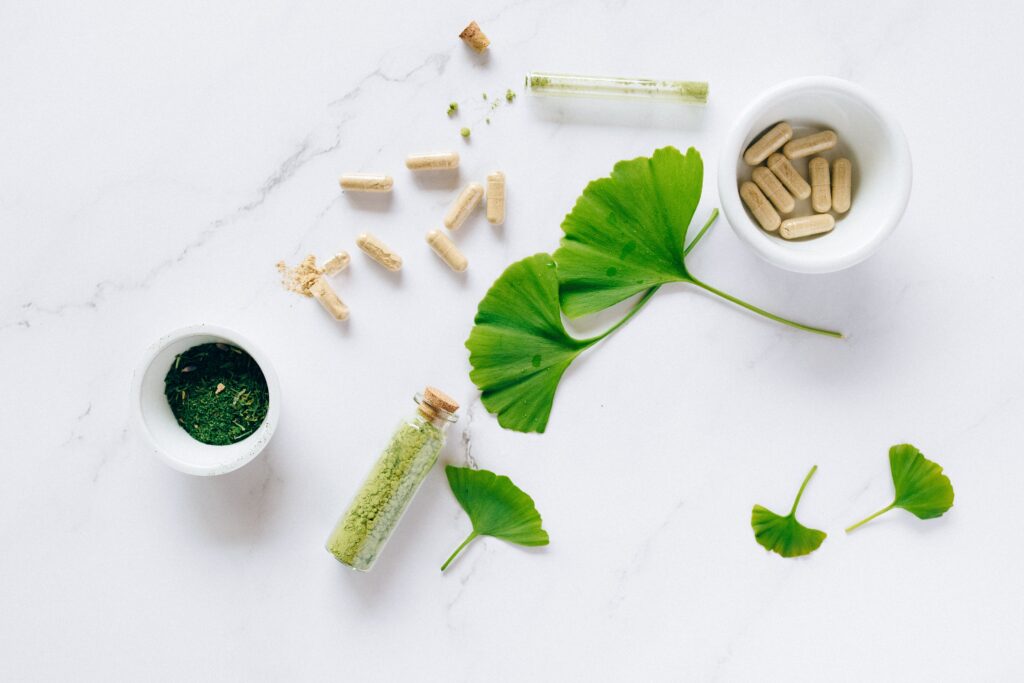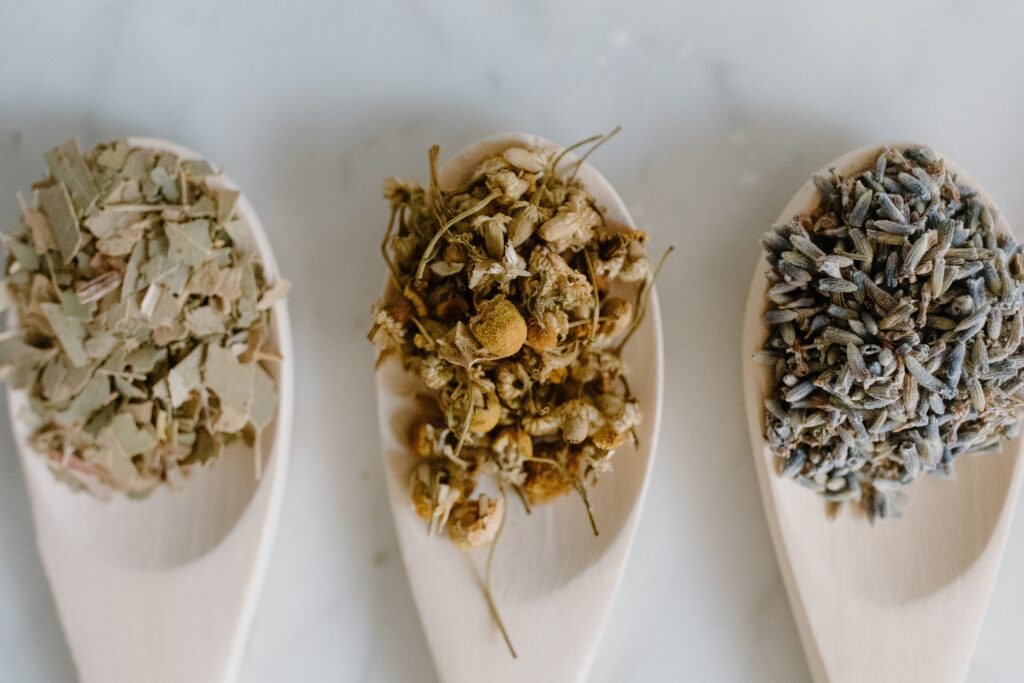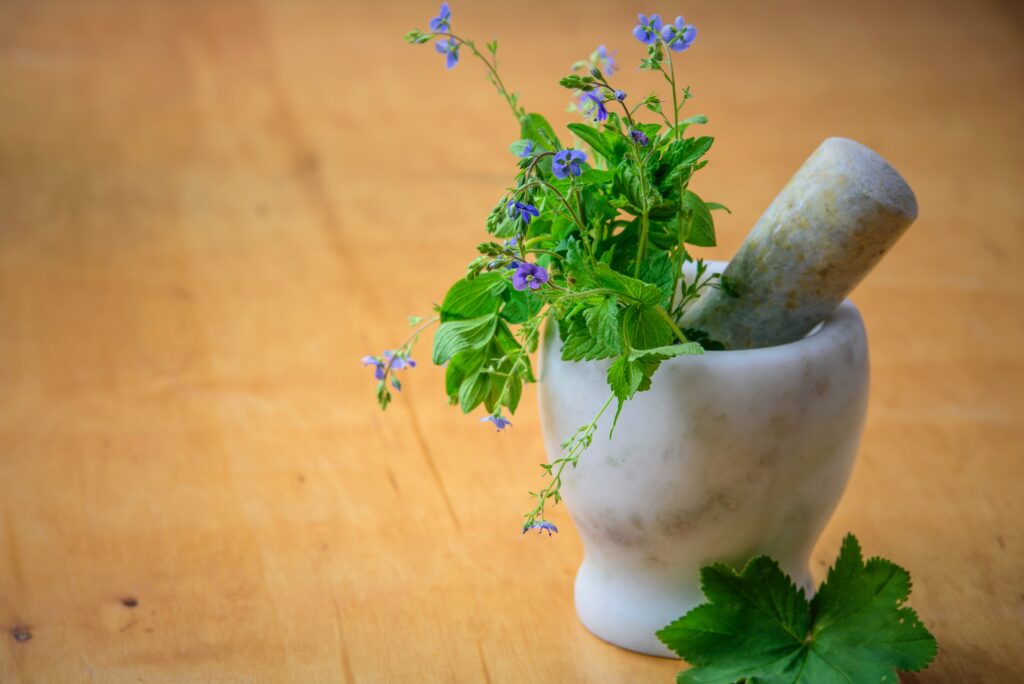
Greece has a long history of using herbal therapy, and there are a number of traditional treatments that are said to improve hair health and lessen hair loss. Even though there may not be much supporting evidence for some of these cures, Greek culture has long practiced them. Here are a few herbal treatments for hair loss that are popular in Greece:
- Olive Oil: Olive oil has long been utilized as a folk medicine for a variety of illnesses as well as a cosmetic therapy. Although it might not be a “cure” for every condition, it is praised for its adaptability and potential health advantages. Here are a few Greek therapeutic uses for olive oil:
- Digestion: Olive oil is frequently used to promote healthy digestion. It is thought to have a calming effect on the stomach and may aid in reducing indigestion or heartburn symptoms.
- Skin Health: Greek skincare products frequently contain olive oil. Its abundance of antioxidants and good fats helps nourish and moisturize the skin, giving it a radiant appearance.
- Wound Healing: Olive oil has long been a popular treatment for wounds. Its anti-inflammatory qualities might aid in lowering swelling and accelerating the body’s natural healing process.
- Sore Throat and Cough: In Greek culture, gargling with warm water and olive oil is thought to relieve the symptoms of a sore throat and cough.
- Hair Care: As was already said, Greece uses olive oil for hair care. Warm olive oil applied to the scalp is thought to nourish hair and encourage strong hair development.
- Pain Relief: Some Greeks rub their muscles with olive oil to ease joint and muscular pain.
- While there are a number of potential health advantages to olive oil, it should be noted that neither professional medical advice nor therapy should be substituted. Before using olive oil or any other home treatment, it is best to speak with a healthcare provider if you have any particular health concerns.

- Rosemary: Due to its possible health advantages, rosemary (Rosmarinus officinalis) has a long history of medicinal use in Greece. It is frequently utilized in herbal medicine and conventional treatments.
- Greek medicine makes use of rosemary in the following ways:
- Rosemary is thought to have carminative effects, which means it may help treat digestive problems like indigestion, bloating, and gas. To promote digestive health, it is occasionally drank as a tea.
- Rosemary is used for its possible advantages to the respiratory system. It is said that eating rosemary tea or inhaling its fragrance may facilitate easier breathing by reducing respiratory congestion.
- Cognitive Function: Rosemary is thought to have the ability to improve cognitive function. In Greece, some people use rosemary to improve their memory and mental clarity. Additionally, rosemary is thought to stimulate the intellect simply by its aroma.
- Hair Health: As was already said, rosemary is utilized in Greece to support healthy hair and prevent hair loss. Making a rosemary-infused hair rinse is thought to promote hair development and enhance the texture of hair.
- Rosemary-infused oils or ointments are utilized topically for a variety of reasons. It is thought to have anti-inflammatory qualities and can be used to calm tight muscles and treat mild skin irritations.
- Cognitive FunctionRosemary is thought to have the ability to improve cognitive function.In Greece, some individuals use rosemary to Rosemary is a common herb in Greek cuisine and is reputed to have the ability to thicken hair. utilizing the infused rosemary water after boiling rosemary leaves.
- Rosemary-infused oils or ointments are utilized topically for a variety of reasons. It is thought to have anti-inflammatory qualities and can be used to calm tight muscles and treat mild skin irritations.
- Rosemary has a high concentration of antioxidants, which can help fight free radicals and shield the body from oxidative stress. These antioxidant advantages of rosemary may be obtained by eating it or applying it topically.
- Circulatory Support: According to several Greek folk remedies, rosemary, when applied topically or taken in moderation, may aid in enhancing circulation.
- While rosemary is generally regarded as safe when used in small amounts for cooking, pure rosemary extracts or essential oils should be used with caution as they can be strong .
- Lavender: Lavender is another aromatic herb that is used for hair care in Greece. Lavender oil is thought to have soothing and anti-inflammatory properties, which may benefit the scalp and promote healthier hair.
- migraines and headaches: Lavender oil is used by some Greeks to treat migraines and headaches. It is thought to have a soothing effect and may lessen tension associated with headaches.
- Lavender oil is believed to contain antibacterial and antifungal qualities, making it potentially helpful for treating small wounds, cuts, and skin infections.
- Aphrodisiac: Lavender is regarded as an aphrodisiac in Greek tradition and is thought to promote intimacy and love impulses.
- Use lavender and lavender-related products carefully because they contain strong concentrations of essential oils, especially those. It is advised to conduct a patch test on a small area of skin to look for any adverse responses before using lavender as a medicine.
- Nettle: Nettle is commonly used in traditional Greek herbal medicine to address various health issues, including hair loss. Nettle extracts are believed to be beneficial for hair growth and scalp health.
- Chamomile: Chamomile is known for its calming and anti-inflammatory effects. Using chamomile tea as a hair rinse is believed to soothe the scalp and encourage healthy hair.
Chamomile is well known for its relaxing qualities, which promote relaxation and sleep. In order to encourage relaxation and enhance the quality of sleep, chamomile tea is frequently drank in Greece before night.

- Aloe Vera: Aloe vera has a long history of use in Greece for various health and beauty purposes. Applying aloe vera gel to the scalp is believed to nourish the hair follicles and promote hair growth.
- Aloe vera gel is well known for its calming and hydrating effects on the skin. It is frequently applied to soothe skin irritations, mild burns, and sunburns. Aloe vera gel can be administered topically in Greece to encourage skin healing and lessen irritation.
- In Greece, aloe vera juice is occasionally taken to enhance digestive health. Constipation may be helped by its moderate laxative effect, which is thought to exist in this substance.
- Aloe vera gel is used for its conceivable wound-healing abilities. It is thought to hasten the healing of small cuts and wounds and encourage skin cell regeneration.
7. Sage: Sage is used in Greek cooking and is also considered beneficial for hair health. Sage tea or an infusion can be used as a hair rinse to promote hair growth and shine.
8. Thyme: Thyme is a culinary herb with potential benefits for hair health. It is believed to stimulate hair follicles and promote hair growth when used as a hair rinse.
9. Apple Cider Vinega: While not an herb itself, apple cider vinegar is used as a hair rinse in Greece to balance the pH of the scalp, remove buildup, and improve hair health.
- A common natural cure utilized in Greece and many other cultures for a variety of health and wellbeing issues is apple cider vinegar (ACV). It contains acetic acid and other advantageous ingredients and is prepared from fermented apple cider. The following are some use for apple cider vinegar in conventional Greek medicine:
- Blood Sugar Management: Some data points to apple cider vinegar as a potential aid in enhancing insulin sensitivity and promoting normal blood sugar levels. It may be used in Greece as an additional kind of care for people with diabetes or other conditions involving blood sugar.
- Weight Management: Some Greeks who are trying to lose weight use apple cider vinegar. It is thought to encourage a sensation of fullness and may suppress appetite.
It’s crucial to remember that while herbal therapies may be beneficial, individual results may vary and they may not be efficient for everyone. For a proper diagnosis and treatment plan if you have significant hair loss, skin issues, digestive issues, or other parts of your body, consult a doctor or other healthcare expert.




